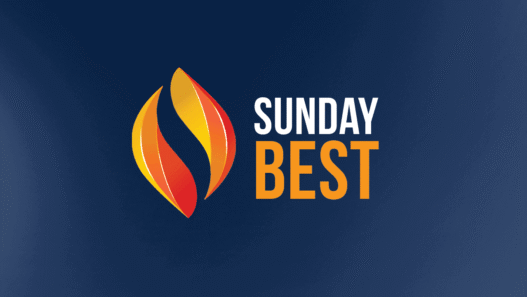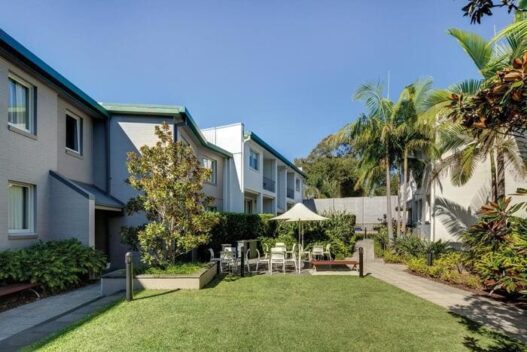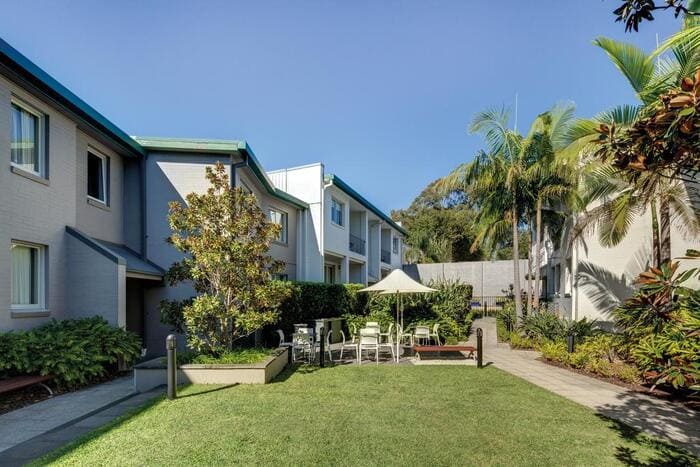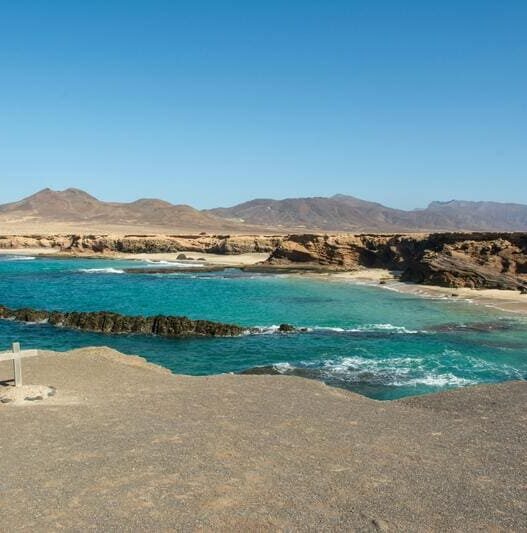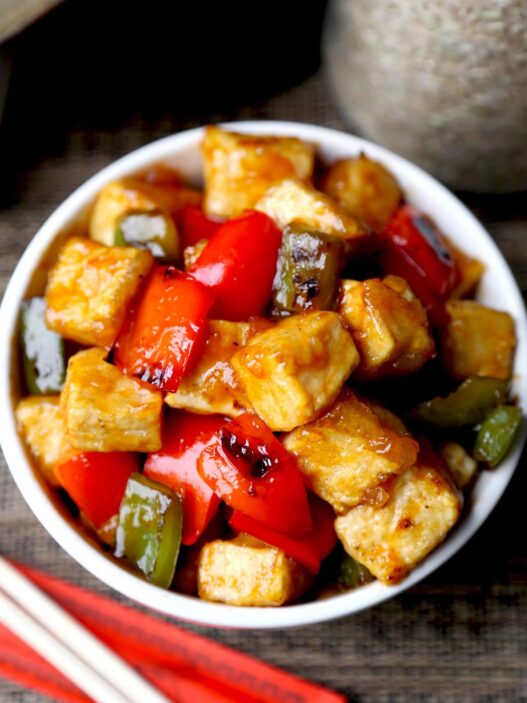Australia has a way of getting under your skin – in the best way possible.
The first time I arrived, I remember how everything felt so effortlessly vibrant. Mornings in Perth often began at a beachside café with a flat white in hand (Australians really do take their coffee seriously), and the smell of the ocean just a few steps away.
Then there's Sydney, where the energy completely shifts. Joggers circle around the Sydney Opera House before work, and weekends are for ferry rides to Manly or a coastal walk from Bondi to Coogee. The city has that perfect mix of nature and cosmopolitan buzz – you could be in a suit one minute and in swimwear the next.
And when I finally made it to Melbourne, I understood why everyone calls it Australia's cultural capital. Its laneways hide some of the coolest speakeasy bars and late-night eateries I've ever stumbled upon.
But as dreamy as life Down Under sounds, moving here takes serious planning. From choosing the right Australian visa to figuring out rent, jobs, and healthcare, there's a lot that happens behind those Instagram-perfect sunsets. Even the small details, like setting up an eSIM for Australia before you land, can make the transition smoother by keeping you connected from day one.
If you're thinking about making the move, here are 7 essential tips for moving to Australia.
7 Tips For Moving To Australia
1. Get To Know The Australian Lifestyle
Quokka!
Before moving, it's worth taking time to understand the Australian lifestyle and culture. Daily life here blends a love for the outdoors with a strong sense of balance. Mornings often start early — many people head out for a jog, surf, or grab coffee from their favourite local café before work.
Each city offers a different pace. Sydney is energetic and career-driven, known for its mix of coastal living and big-city ambition. Melbourne leans towards arts, coffee, and creativity — its laneways are filled with street art, boutique shops, and late-night bars. Perth, Brisbane, and Adelaide move at a slower rhythm, offering more space, sunshine, and generally lower living costs.
Understanding these lifestyle differences can help you decide where you'll feel most at home. It's also smart to compare the cost of living in Australia vs the UK, as expenses like rent, transport, and food vary by city, and salaries usually reflect that. To give you an idea:
Rent In Australia
Bondi, Sydney
Expect to pay around AUD 650–900 per week for a one-bedroom apartment in central Sydney or Melbourne. In Perth, Adelaide, or Brisbane, the same apartment could cost between AUD 400–600 per week.
Transport In Australia
Public transport is reliable but can add up. A monthly pass ranges from AUD 150–200 depending on the city. Many people in Perth and Adelaide prefer driving as parking is more accessible.
Groceries and Dining
Grounds of Alexandria, Sydney
Weekly groceries for 1 person typically cost AUD 100 – 150. Eating out is part of the local culture, and a casual café meal averages AUD 20 – 25, while a nice dinner for 2 might be around AUD 80–120.
Utilities and Internet
Combined bills usually come to around AUD 200 – 300 per month, depending on usage and city.
If you're comparing the cost of living in Australia vs the UK, Australia tends to be higher in rent and groceries but offers better salaries and more affordable healthcare options through Medicare (for eligible residents).
2. Sort Out Your Visa Early
Securing your visa is one of the first steps in your move. The type you need depends on your reason for relocating, such as work, study, or joining family. Make sure you understand the requirements for your chosen visa and prepare all documents well in advance. Missing or incorrect paperwork can lead to delays and extra stress.
Once your visa is approved, organise your important documents. Keep copies of your passport, medical records, and academic certificates, both printed and digital. Having everything stored neatly will make things easier when you need to register for services later.
If your career requires licensing, check whether your qualifications are recognised in Australia. Some professions, like nursing or teaching, may need local registration or additional training. Getting this sorted before moving saves time and helps you start working sooner.
3. Pick the Right City for You
Each Australian city has its own rhythm and personality – so it's worth choosing one that truly matches your lifestyle, goals, and priorities.
Sydney, Australia
Sydney, Australia
Sydney is where the energy never really stops. It's dynamic, fast-moving, and perfect for professionals chasing career growth. Between the stunning harbour views, outdoor dining by the water, and countless job opportunities, Sydney feels alive at every hour — though it does come with one of the highest living costs in the country.
If you thrive in big cities and don't mind the hustle, Sydney gives you the best of both worlds — a buzzing city life balanced by beaches and coastal walks that make you feel like you're miles away from work stress.
Melbourne, Australia
Over in Melbourne, the vibe is completely different. Known as the cultural heart of Australia, it's all about creativity, coffee, and community. The city's famous laneways are lined with vibrant street art, boutique shops, and hidden bars that only locals seem to know about.
Melbourne is a little more affordable than Sydney, yet still offers an exciting, urban lifestyle for those who love arts, diversity, and good food. If you're into live music, festivals, and a café scene that rivals anywhere in the world, you'll feel right at home here.
Perth, Australia
Rottnest Island, Australia
If you prefer space, sunshine, and a slower rhythm, Perth is the place to be. Life here feels relaxed yet fulfilling, with endless beaches and a strong café culture.
One of my favourite weekend routines was taking the ferry to Rottnest Island — an easy day trip that feels like stepping into a postcard. With turquoise waters, white sand, and the world's happiest animals (the quokkas!), it's easy to see why people fall in love with Western Australia.
Brisbane, Australia
Brisbane, Australia
Brisbane offers a different kind of charm. With its warm climate, riverside parks, and a laid-back attitude, it's the kind of city where life happens outdoors. Locals are friendly, the cost of living is lower, and there's always something to do — from kayaking on the Brisbane River to road-tripping up to the Sunshine Coast or Gold Coast.
If you're looking for a balance between city life and easy access to nature, Brisbane is a strong contender.
Adelaide, Australia
Adelaide often flies under the radar, but it's one of Australia's most liveable cities. It stands out for its affordability, great schools, and strong community vibe — perfect for families or anyone seeking a calmer lifestyle.
It's also an ideal base for weekend getaways, with stunning beaches nearby and the Barossa Valley wine region just an hour away.
Finding Your Perfect Fit
Before deciding where to live, think about what matters most to you. If career growth is your top priority, Sydney or Melbourne might be your best bet. For families or anyone seeking a more relaxed pace, Perth, Brisbane, or Adelaide could feel more like home.
Climate also plays a big role. Northern regions are warmer and humid year-round, while southern areas have cooler winters and distinct seasons. Whether you're chasing endless sunshine or love the feel of autumn leaves, choosing a city that fits your lifestyle will make your move to Australia smoother — and far more enjoyable in the long run.
4. Plan Your Finances Before You Move
Preparing your finances early can make a big difference once you arrive. Start by opening an Australian bank account, which many banks allow you to do before leaving. It helps with transferring funds and setting up payments when you get there. Knowing your banking options ahead of time can save you unnecessary fees.
When moving money internationally, compare transfer services to find the best rates. Avoid relying on airport exchanges, as they tend to cost more. Keep track of currency changes and move funds in small batches if needed.
Don't forget to budget for early expenses such as rent deposits, furniture, and transport. It's wise to have extra funds for unexpected costs during your first few months. Creating a detailed budget before you go will help you manage your spending confidently.
5. Find A Place To Live
Newtown Sydney
Finding the right home takes time, so start by arranging temporary accommodation. This gives you a chance to explore neighbourhoods before committing to a long-term lease. Many new arrivals stay in serviced apartments or short-term rentals while searching for something permanent.
Research property websites to understand rental prices in your chosen city. In Australia, you usually need to attend property inspections before applying. Have your identification, proof of income, and references ready to improve your chances. Being prepared shows landlords you're a serious tenant.
When viewing a home, check practical details like ventilation, insulation, and access to transport. Pay attention to the neighbourhood's safety and convenience. These details can affect your comfort and quality of life more than you might expect.
6. Learn About the Local Culture
Understanding local culture will help you adjust faster and feel more at home. Australians are friendly, open, and often enjoy a bit of humour in conversation. A simple greeting or chat can make a good impression and build new connections. Don't be afraid to start conversations or ask for advice.
Workplaces tend to be relaxed but professional. People value efficiency but also make time for personal life. You'll notice that colleagues often leave on time to spend evenings with friends or family. This balance is something many newcomers come to appreciate quickly.
Australia is also a multicultural country, with influences from many backgrounds. You'll see this in food, events, and everyday life. Taking part in community activities is one of the best ways to meet people and understand local customs. Being open-minded helps you feel settled sooner.
7. Handle Everyday Essentials Early
Once you've landed, it's best to get your everyday essentials sorted as soon as possible.
Start by applying for a Tax File Number (TFN) if you plan to work — you'll need this for any job in Australia. If you're eligible for public healthcare, make sure to register for Medicare early on. If not, consider getting private health insurance to cover any medical costs that aren't included.
Next, set up utilities like electricity, gas, and internet once you've secured your home. Having these ready before move-in day makes your first few days much smoother.
If you plan to drive, check whether your current driver's licence is valid in Australia. Many countries allow temporary use for up to three months before you'll need a local licence. Spend some time learning the local traffic rules and road signs, especially if you're used to driving on the right-hand side.
It's also worth getting familiar with public transport options in your city. Australia's metro, tram, and bus systems are generally reliable, and you'll save money compared to daily driving.
Moving to Australia is a big change, but it's also one of the most rewarding decisions you can make. With the right preparation — and an open attitude — settling in becomes so much easier. Take things one step at a time, stay patient, and make space to enjoy the little moments along the way.
I still remember my first weekend getaway in Queensland — waking up to the sound of kookaburras in the trees, spotting kangaroos hopping across open fields, and snorkelling over the Great Barrier Reef, surrounded by the most colourful marine life I'd ever seen. It was one of those “pinch me” moments that made all the effort of moving feel worth it.



